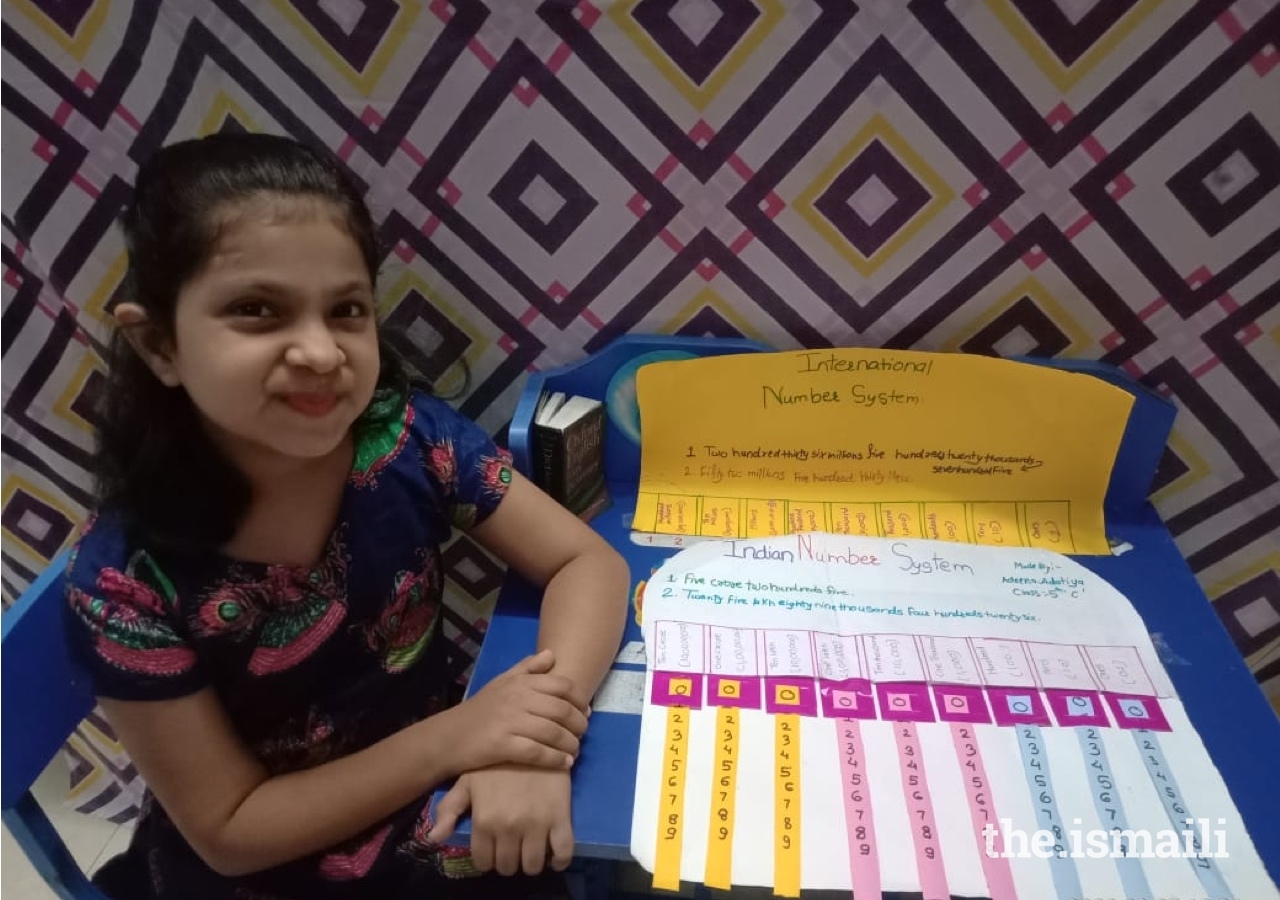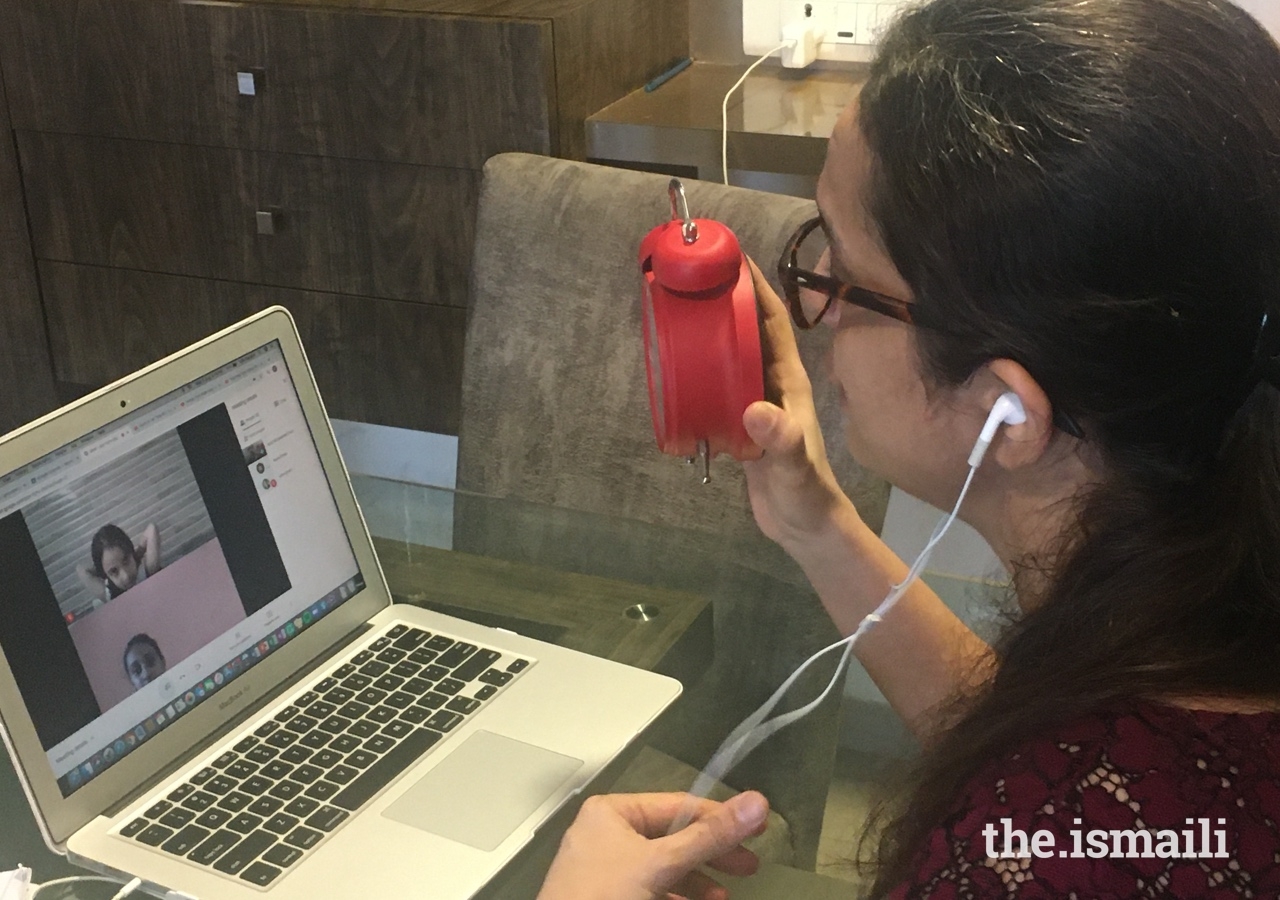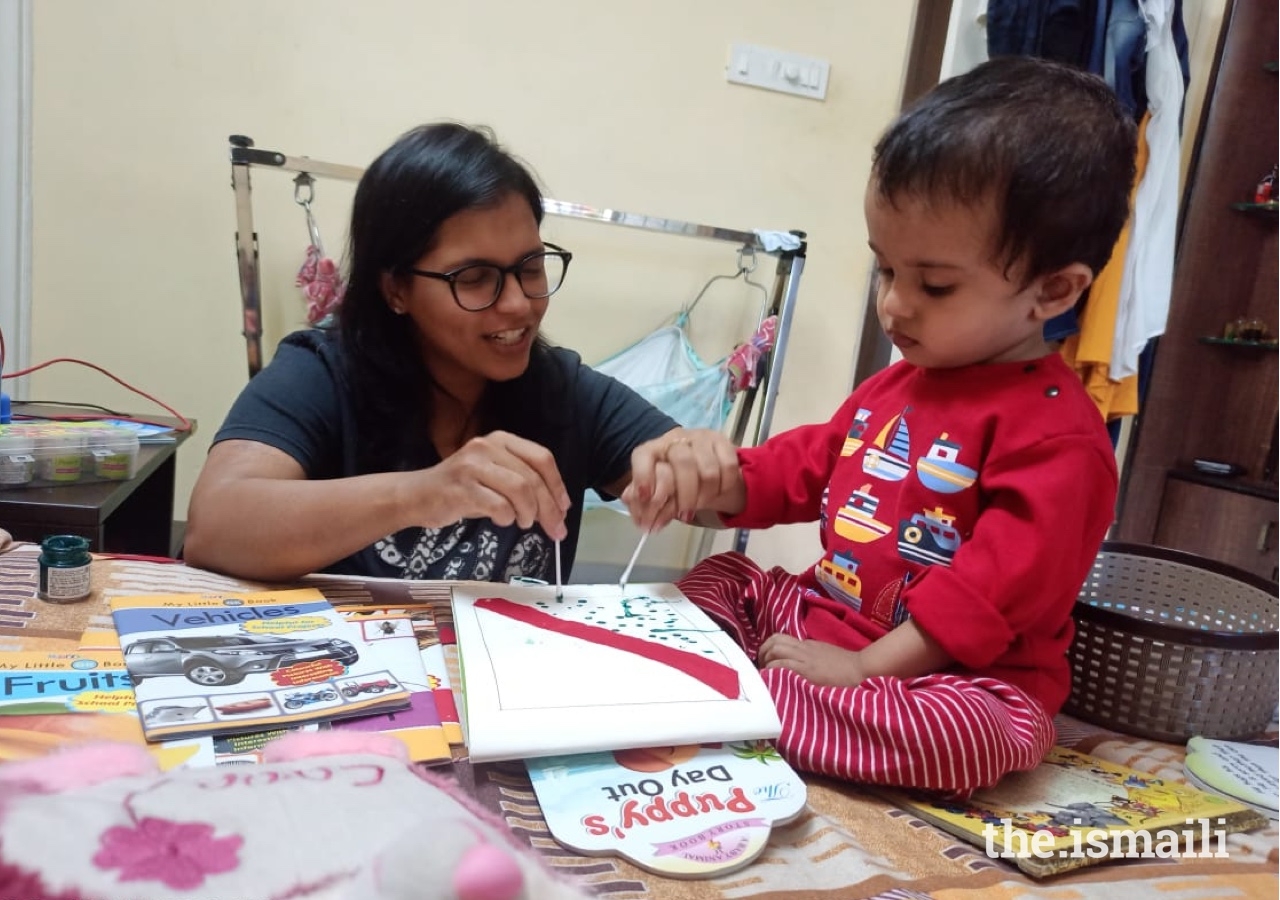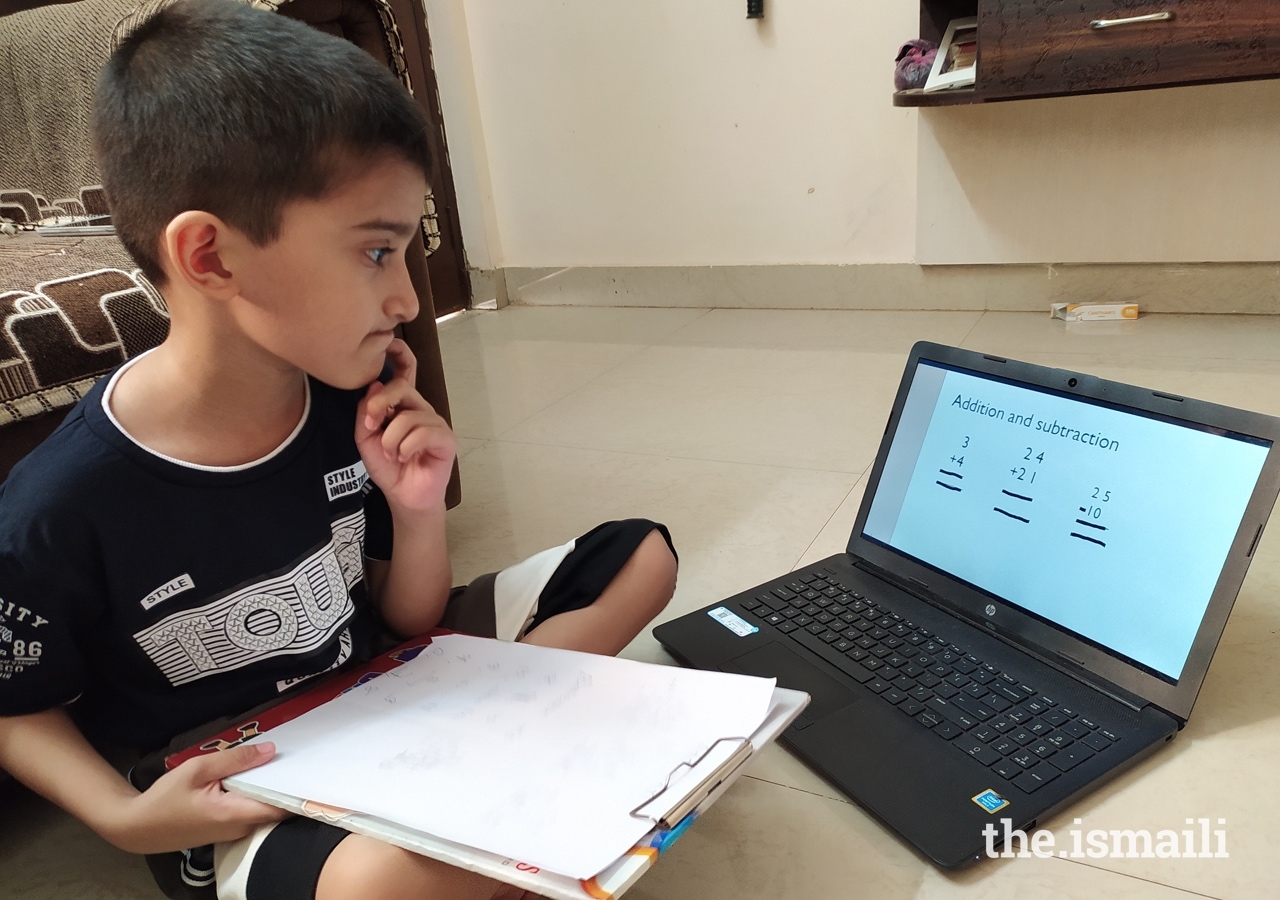Supported by a network of over 1,600 volunteer teachers across the country, both institutions responded quickly to the knowledge vacuum, providing students with the opportunity to continue their learning at home. In recognition of World Teacher’s Day, we reflect on the service and commitment of their teachers: the heart of their “classroom without walls.”
Among the many inequalities exposed by the pandemic in India has been the varying access to good quality education. When the nation-wide lockdown forced schools to close, these inequalities grew worse. A sharp digital divide now separated students whose schools offered curated online learning versus those who simply assigned homework via WhatsApp.
“We had to respond quickly,” said Shabana Dayani, a National Board Member with the Aga Khan Education Board (AKEB). “We wanted to ensure that students were kept engaged and were learning. While there are numerous online educational websites, the question we asked ourselves was: ‘Will parents have the capacity to access these online resources or the means to identify, collate, and share these learnings with their children?’”
It was in response to these questions that AKEB’s Virtual Learning Programme took shape to fill the vacuum created by the abrupt shut down of schools. Supported by the efforts of over 250 teachers, AKEB’s initiative has provided over 4,000 classes since its inception, for three hours every week. The programme started on 15 May with 1,160 students from Grades 1-8 across India. It has since been extended, further supplementing the education of close to 1,000 students with the help of more than 90 teachers.
The efforts of the volunteer teachers were supported by a dedicated team of support volunteers, whose efforts around coordination and programme administration made sure that the Virtual Learning Programme provided a consistent educational experience.
While AKEB focused on providing continued secular education, the Ismaili Tariqah and Religious Education Board for India (ITREB) took the unprecedented step of taking its RE programmes virtual as well. ITREB launched RE-Kindle, a Virtual Religious Education Programme, in June, which has since been extended for the entire academic year until March 2021. It is being offered to over 80% of REC students across India with the support of nearly 1,400 teachers.
“As soon as we realised that Jamatkhanas will be closed for the long haul, we knew we had to retain the connection students shared with their RE teachers and preserve a sense of normalcy in their lives,” said Seemeen Patel, the Early Childhood and Primary Academic Lead.
ITREB’s Virtual RE programme adopted different approaches for different age groups, anchored in the view that parents are partners in the RE programme. So, for example, for those under the age of six, a holistic model was proposed, which was an integrated effort by ITREB India’s Early Childhood Development Programme, AKHB and AKEB. For children under the age of 10, an asynchronous learning model was adopted, wherein teachers shared videos explaining concept-based activities for children to complete. Parents then shared photos and videos of children engaged in these activities at home and teachers connected individually with students to discuss their assignments. STEP classes were based on synchronous learning where students had live 90-minute classes once a week.
The rigour of the virtual RE model meant that teachers had to commit significantly more time not only in lesson planning and delivery, but also in ongoing follow up and feedback.
“It has meant more time but it’s also such a motivational boost to see how involved the children are,” said Shazia Lalljee, a Pune-based teacher.
In addition to teaching classes on Zoom, teachers like Shazia also individually follow up with students to discuss their RE assignments.
“Kids are so adaptive,” she said, when asked about the new RE model. “They’re adjusting well to this new set up and that’s what really motivates us to go back and give it our best, every single time.”.
In addition to teachers, parents have also played a critical role in the success of the Virtual RE programme. Dozens of parent testimonials highlight how the Virtual RE initiative has enhanced the time they spend with their children, and in turn has helped them revive key concepts of their faith in innovative ways. Many have also praised the activities, designed by teachers, which were simple and could be done with basic, at-home ingredients.
“The virtual RE initiative has really helped me to rekindle my own childhood memories. It’s made me realise the vital role that teachers play; but more importantly, it has also reinforced that as parents, we must also play an active role in our child’s religious formation,” said Rizwan Dhuka, parent of a young toddler.
Having spearheaded the online education model for Ismaili students in India, both AKEB and ITREB have been able to devise a high-impact model of learning in these times. However, success has no doubt been dependent on the teachers who have led these initiatives, adapting themselves to new platforms and pedagogies, in the true spirit of service.
“I love teaching. It is my passion,” said Karina Andani from Botad in Gujarat, as she reflected on her role in the programme. Karina teaches Scratch, a block-based visual programming language to students in Grades 5 and 6.
“Even when I did not understand some concepts during the training, I spent extra time online and taught myself,” she said.
Both initiatives by ITREB and AKEB in India reflect how agility and adaptability are central to navigate any crisis. Above all they pay tribute to a community of teachers whose passion and purpose has ensured that learning can prevail, even in these times.











